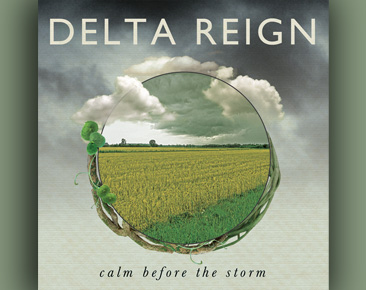Calm Before the Storm is a twelve-track collection which draws from several country and bluegrass legends. The album kicks off with a western swing version of the Hank Williams tune There’ll Be No Teardrops Tonight. This song has a great rhythm and some fine fiddling from band member George Mason. The band infuses the Flatt and Scruggs classic A Hundred Years from Now with a jazzy, western swing sound and gives the traditional Don’t You Hear Jerusalem Moan a bluesy arrangement that sounds straight out of the Mississippi delta. The song which seems to be most faithful to previous renditions is Good Woman’s Love, sung in a calm, smooth tenor by Mason.
Among the album’s standout tracks is Columbus Stockade Blues, which, although it tells of a person who is not only in jail but has also just lost their true love, is a toe-tapping number which is just fun to listen to and includes a great bass solo. Another interesting tune is Don’t You Know, one of the most bluegrass-sounding tracks on the album. It speaks of a woman who has been in love with someone from afar but hasn’t quite gotten up enough courage to make a move.
Two original tunes with a nice bluegrass flair by lead vocalist Benita Murphy round out the album. Red Dirt Dreams reminisces on the simpler times of a rural childhood, while the story of someone preparing for a hurricane in Last Southbound Train will surely be familiar to coastal residents. Both songs feature some nice picking from banjo player Pat Murphy.
Delta Reign describes themselves as “delta bluegrass,” and that is a great representation of the music on this album. Benita Murphy (guitar), Pat Murphy (banjo), George Mason (fiddle), and Joshua Faul (bass) have created an enjoyable, distinctive mix of genres from the southern United States.
For more information on the band, visit their website at www.deltareign.com.
Calm Before the Storm can be purchased from their website and a variety of digital music stores.
